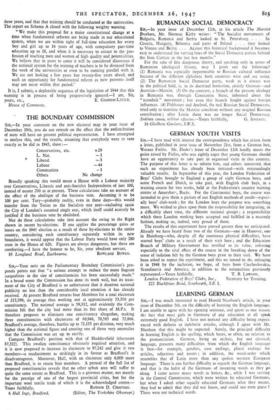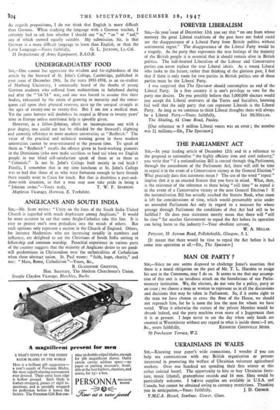LEARNING GERMAN Sta,—I was much interested to read Harold Nicolson's
article, in your issue of December 5th, on the difficulty of learning the English language. I am unable to agree with his opening sentence, and quote as one reason thr fact that most girls in Germany of any education at all speak extremely good English. I have not noticed any difficulty being experi- enced with definite or indefinite articles, although I agree with Mr. Nicolson that this might be expected. Surely, the principal difficulty in learning English is the spelling, which bears, so often, no relation to the pronunciation. German, being an archaic, but not classical, language, presents many difficulties from which the English language is free—for example, genders, case endings, plural endings for articles, adjectives and nouns ; in addition, the word-order which resembles that of Latin more than any spoken western European language. There is one further difficulty as regards the German language, and that is the habit of the Qermans of inventing words as they go along. I came across many words in letters, &c., while I was serving in the Control Commission, which were written by educated Germans, but when I asked other equally educated Germans what they meant, they had to admit that they did not know, and could not even guess ! These were not technical words.
As regards prepositions, I do not think that English is more difficult than German. When studying the language with a German teacher, I certainly had to ask him whether I should use "in," " an " or auf," any of which seemed equally suitable. My submission, Sir, is that German is a more difficult language to learn than English, or than the































 Previous page
Previous page